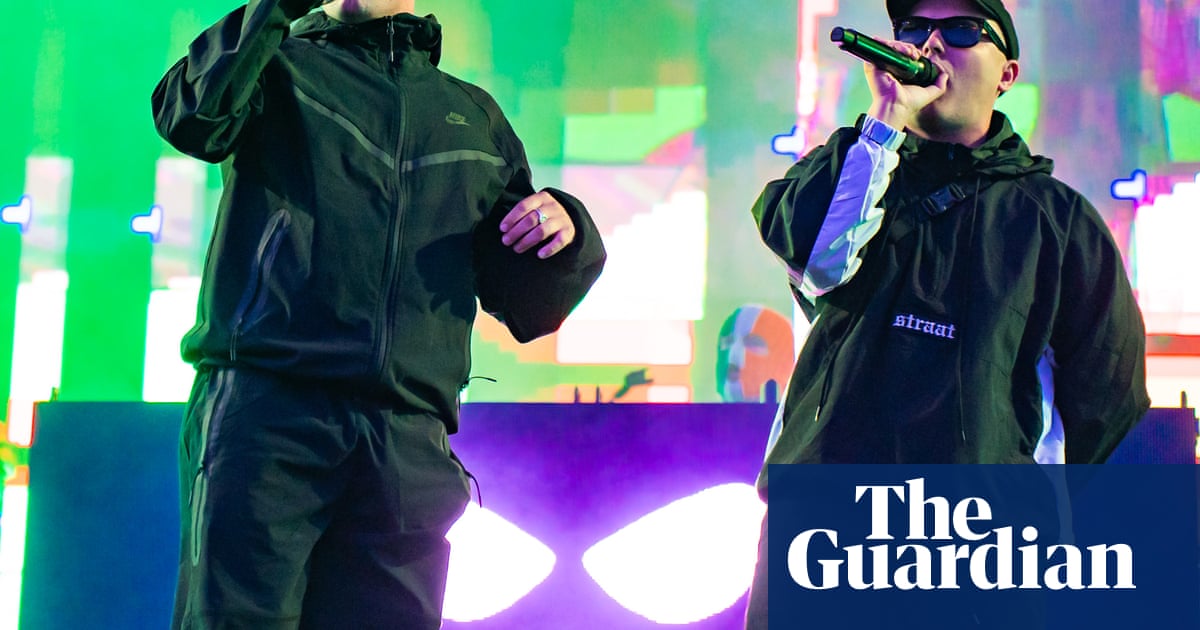Thousands of fans showed up to support Kneecap at a festival they headlined on Friday night, days after one of its members was charged with a terror offence.
The Irish-language act performed at the Wide Awake festival in Brockwell Park, south London, two days after band member Liam Óg Ó hAnnaidh, 27, who performs under the stage name Mo Chara, was charged for allegedly displaying a flag in support of Hezbollah at a gig in London in November.
The band called on supporters to gather outside Westminster magistrates court on 18 June when he is due to appear to “show support for Ó hAnnaidh”.
Addressing the charge from the main stage, Ó hAnnaidh said: “I went for an interview with counter-terror police and within days, they came to their verdict that they were going to charge me.”
He later added: “They tried to stop this gig. Honestly, you have no idea how close they came to pulling us.”
During their set at the Coachella festival in California in April, the Belfast band led the crowd in chants of “free, free Palestine” and displayed messages on the stage’s screens including: “Israel is committing genocide against the Palestinian people”. After the performance, the band’s manager, Daniel Lambert, said they had received death threats.
The band’s commitment to speaking out on Gaza remained unaffected by the recent controversy, however. The band donated their fee for the Wide Awake headline slot to Médecins Sans Frontières.
Outside the park gates, Laura Tiernan, 56, from the Socialist Equality party, handed out leaflets expressing support for Kneecap. She said: “There’s been enormous support for the band and for the stand they’re taking. People have come to listen to their music but also to show their solidarity.
“At stake here are fundamental issues of democratic rights to stand up for a people who are being ethnically cleansed and are the victims of a genocide,” Tiernan said.
The trio staged a surprise gig in central London on Thursday in response to the terrorism charge against Ó hAnnaidh.
Earlier in the day, the former Labour leader Jeremy Corbyn spoke from the main stage and called for the UK government to halt arms sales to Israel. “The idea that the last vision of life that so many emaciated, hungry, desperate children should see is a fence at the edge of Gaza and beyond that fence lies food, lies water, lies medicine, lies anaesthetics and antiseptics and all the things they need – they are being deliberately starved to death,” he said.
Hours before their performance on Friday night, Kneecap released a new single titled The Recap, which opens with a Sky News bulletin about the counter-terrorism investigation into the band.
